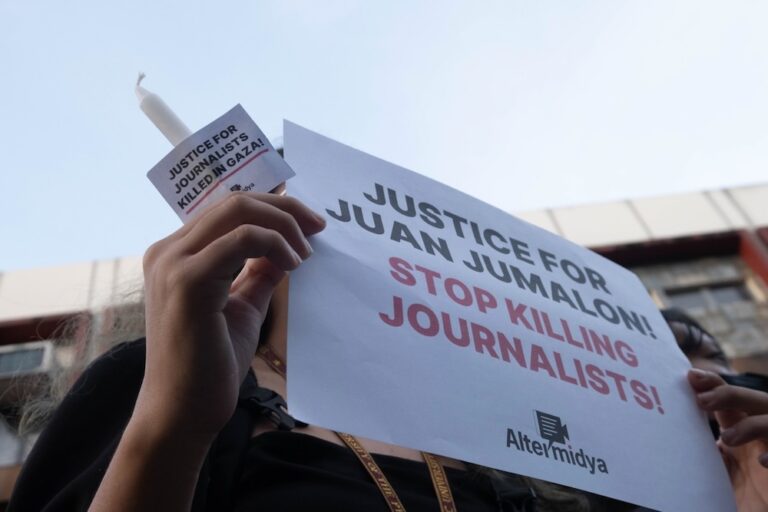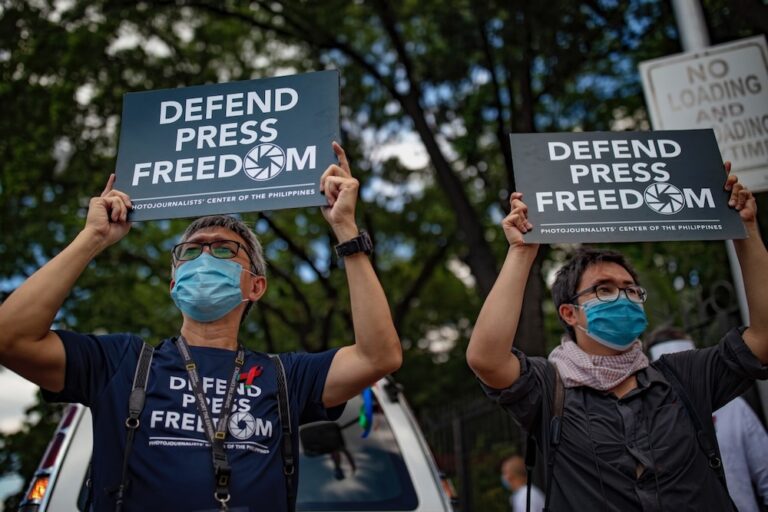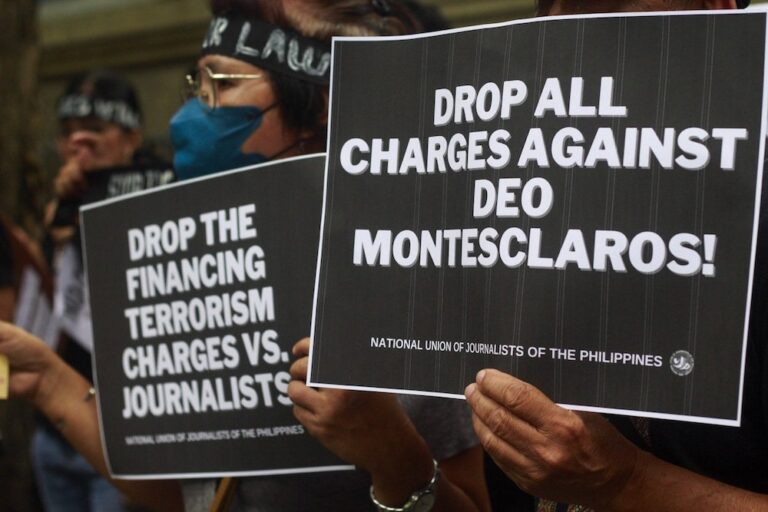(CMFR/IFEX) – On 26 August 2003, local police revealed to the media the identity of journalist Noel Villarante’s alleged killer. The suspect, Senando Palumbarit, has denied any involvement in the murder, which occurred in Santa Cruz, a town in Laguna province, south of Manila. A 27 August report in the “Philippine Daily Inquirer” newspaper said […]
(CMFR/IFEX) – On 26 August 2003, local police revealed to the media the identity of journalist Noel Villarante’s alleged killer. The suspect, Senando Palumbarit, has denied any involvement in the murder, which occurred in Santa Cruz, a town in Laguna province, south of Manila.
A 27 August report in the “Philippine Daily Inquirer” newspaper said that the victim’s wife, Jocelyn, had positively identified Palumbarit as her husband’s killer.
According to “Today” newspaper, Palumbarit was arrested on the afternoon of 25 August. Palumbarit is currently in the custody of the Santa Cruz police.
Villarante was killed only six weeks after Bonifacio Gregorio, a reporter for “Dyaryo Banat” community paper in Tarlac, was shot to death in front of his house by an unidentified assailant (see IFEX alerts of 6 August and 17 July 2003). Villarante was also gunned down in front of his house by three unknown individuals.
Villarante, a thirty-two-year old columnist for “Laguna Score” community newspaper and a broadcaster for DZJV radio station, was killed at about 6:45 p.m. (local time) on 19 August. According to CMFR, Villarante is the 40th Filipino journalist killed in the line of duty since the overthrow of the Marcos dictatorship in 1986, and the fourth to be killed this year.
Villarante was first shot in the chest as he emerged from his house, but was able to run back inside to ask for help from his family. As family members rushed to take him to the hospital, however, the assailants returned, shot Villarante in the head and fled in a red van.
On 21 August, “Laguna Score” editor Ulysses Lopez was quoted in “Philippine Star” newspaper, saying that the journalist’s murder was “definitely job-related” and that Villarante “was known for his hard-hitting commentaries against politicians.” Lopez also added that Villarante had received death threats on a regular basis but never disclosed the details to colleagues.
There are also reports that Villarante may have been killed by drug syndicates because he had exposed illegal drug activities in the area.


